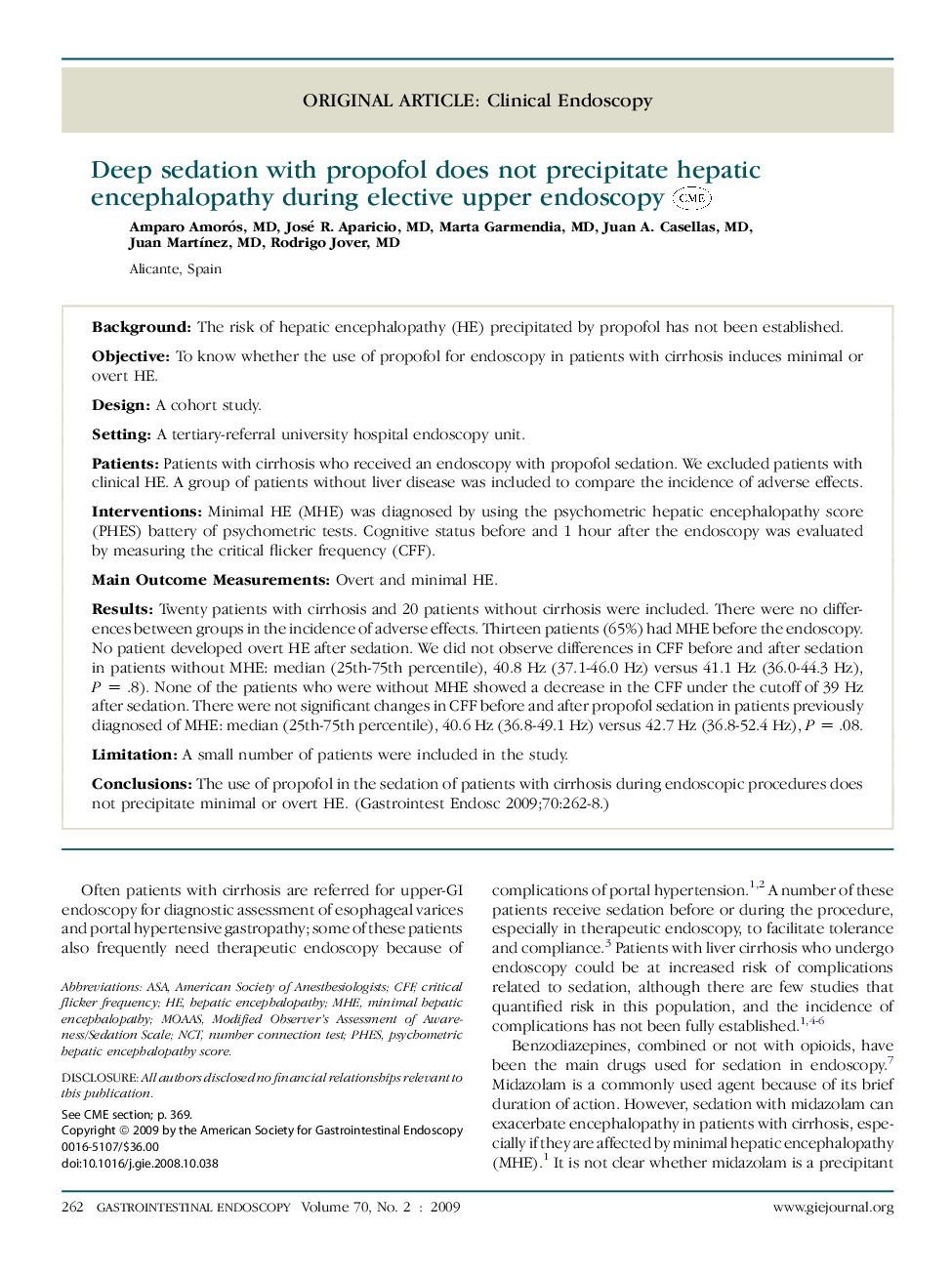| Article ID | Journal | Published Year | Pages | File Type |
|---|---|---|---|---|
| 3305174 | Gastrointestinal Endoscopy | 2009 | 7 Pages |
BackgroundThe risk of hepatic encephalopathy (HE) precipitated by propofol has not been established.ObjectiveTo know whether the use of propofol for endoscopy in patients with cirrhosis induces minimal or overt HE.DesignA cohort study.SettingA tertiary-referral university hospital endoscopy unit.PatientsPatients with cirrhosis who received an endoscopy with propofol sedation. We excluded patients with clinical HE. A group of patients without liver disease was included to compare the incidence of adverse effects.InterventionsMinimal HE (MHE) was diagnosed by using the psychometric hepatic encephalopathy score (PHES) battery of psychometric tests. Cognitive status before and 1 hour after the endoscopy was evaluated by measuring the critical flicker frequency (CFF).Main Outcome MeasurementsOvert and minimal HE.ResultsTwenty patients with cirrhosis and 20 patients without cirrhosis were included. There were no differences between groups in the incidence of adverse effects. Thirteen patients (65%) had MHE before the endoscopy. No patient developed overt HE after sedation. We did not observe differences in CFF before and after sedation in patients without MHE: median (25th-75th percentile), 40.8 Hz (37.1-46.0 Hz) versus 41.1 Hz (36.0-44.3 Hz), P = .8). None of the patients who were without MHE showed a decrease in the CFF under the cutoff of 39 Hz after sedation. There were not significant changes in CFF before and after propofol sedation in patients previously diagnosed of MHE: median (25th-75th percentile), 40.6 Hz (36.8-49.1 Hz) versus 42.7 Hz (36.8-52.4 Hz), P = .08.LimitationA small number of patients were included in the study.ConclusionsThe use of propofol in the sedation of patients with cirrhosis during endoscopic procedures does not precipitate minimal or overt HE.
